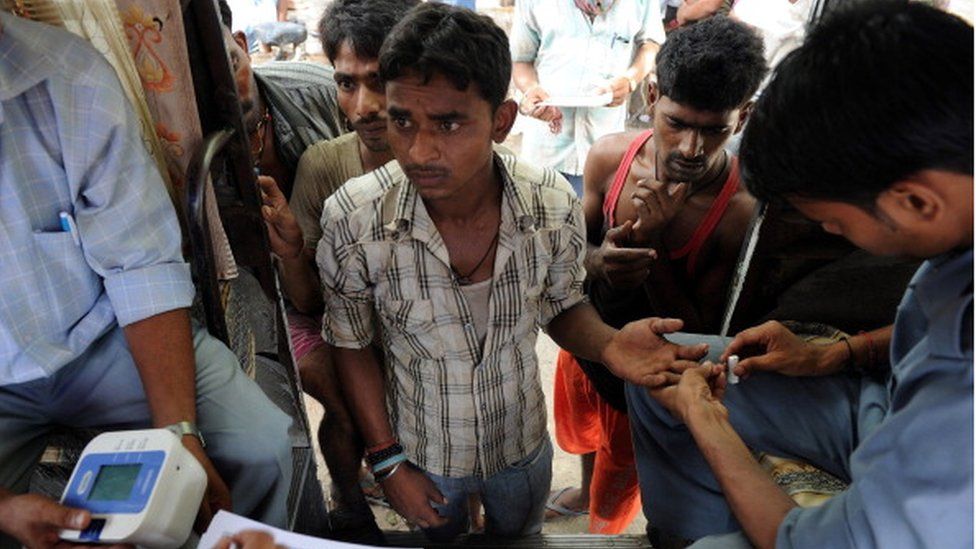On March 4th, the global community marked World Obesity Day, prompting me to emphasize the urgent need for discussions surrounding the risks associated with obesity, particularly focusing on abdominal obesity and its profound impact on overall health.
The link between abdominal obesity and its influence on conditions like diabetes is crucial to acknowledge. Through informed lifestyle choices and increased awareness, we can alleviate the burden of obesity.
In Africa, obesity rates are surging, posing a significant threat to millions, including children, as highlighted by the World Health Organization’s warning of a “ticking time bomb” if left unaddressed. The global prevalence of overweight and obesity has tripled since 1975, presenting a grave public health challenge.
In South Africa, urban areas are experiencing a concerning prevalence of excess body weight, leading to a rise in non-communicable diseases (NCDs) such as prediabetes, Type 2 Diabetes, hypertension, and atherogenic dyslipidaemia. These NCDs contribute significantly to the burden of cardiovascular disease (CVD) in the country, which ranks as the unhealthiest globally.
Abdominal obesity, characterized by fat accumulation around the abdomen, poses a significant health risk, potentially leading to diabetes, heart disease, or stroke, even in individuals with an otherwise healthy body weight.
While addressing the complexities surrounding diabetes and its contributing factors is challenging, increasing awareness, implementing preventive measures, and advocating for comprehensive healthcare strategies can empower Africa to tackle the growing burden of abdominal obesity and strive for a healthier future.
Both South Africa and Nigeria, Africa’s largest economies, are witnessing rapid increases in obesity rates. Projections indicate a 47.7% rise in female obesity and a 23.3% increase in male obesity in South Africa by 2025. In Nigeria, approximately 12 million individuals were estimated to be obese in 2020, with higher prevalence among women, particularly in urban areas. These trends are attributed to demographic shifts, rising income levels, urbanization, unhealthy lifestyles, and the consumption of highly processed diets like fast food.
How does abdominal obesity lead to diabetes and other chronic diseases?
Abdominal obesity is a major challenge, because the excess fat affects the effectiveness of insulin – a critical hormone that regulates blood sugar levels. This hinders the body’s capacity to efficiently use its available insulin, increasing insulin production to manage blood sugar levels.
High cholesterol levels and elevated blood pressure are linked to excess insulin production. Over time, as the body struggles to sustain insulin production, blood sugar levels surge, culminating in the development of diabetes.9 Abdominal obesity is therefore the starting point of a complex series of events that ultimately leads to diabetes.In people who have abdominal obesity, the excess fat interferes with the action of insulin, a hormone that keeps blood sugar in check. As a result, the body is not able to use the available insulin and must produce more of it to control the blood sugar. The excess insulin produced can lead to an increase in cholesterol and a rise in blood pressure until the body cannot produce insulin, elevating blood sugar levels. Ultimately, this is how abdominal obesity leads to diabetes.
How do you manage abdominal obesity and avoid diabetes?
A “life-course” approach is to addressing obesity and noncommunicable diseases effectively is recommended by the World Health Organization. This holistic approach emphasises preconception and antenatal care as critical to preventing fetal overgrowth as a result of maternal obesity.
During pregnancy, maternal obesity increases the risk of childhood obesity and Type 2 diabetes even before children enter school. Among these transformative shifts in prevention is the focus on maternal abdominal obesity as a key determinant of long-term health outcomes.
Secondly, obesity prevention should be prioritised for children and adolescents. Preventing childhood obesity requires fostering behavioural interventions spanning pregnancy, infancy, early childhood and adolescence.
For adults who are overweight, it becomes more urgent to take measures to control abdominal weight. Approximately 90% of adults with Type 2 Diabetes are overweight. This statistic highlights the link, and is why most doctors recommend that overweight adults drop their weight by several kilograms as quickly as they can without harming their health.
Losing weight is a matter of achieving a delicate balance between energy intake and energy expenditure. The number of calories consumed should be proportional to the physical activity undertaken. The quality of calories is equally important. Lean proteins such as skinless chicken breast, eggs, pulses and fish, complex carbs such as whole grains, millet, and vegetables and healthy fats such as nuts and seeds are considered good calories. In contrast, simple carbohydrates and unhealthy fats are considered bad calories.
For the best results, consulting a nutritionist about the daily quantity of calories and the type of food that is best to eat is recommended. Regular and moderately intensive exercise such as brisk walking, jogging or dancing five times a week for 30 minutes and muscle strengthening activity two to three times a week is recommended to reduce the excess weight.
If, despite these measures, it remains difficult to lose weight, a doctor may prescribe medicines that can assist in controlling obesity. In terms of health indicators, achieving a minimum weight loss of 5% is linked with positive impacts on blood pressure, fasting glucose, haemoglobin A1c, cholesterol, and is considered clinically significant.
Self-Monitoring of Blood Glucose (SMBG) is essential for diabetes management. This can be performed with portable glucometers, which are recognised by the ADA, IDF, and the National Institute for Health and Care Excellence. SMBG can help manage diabetes (Type 1 Diabetes or insulin-treated Type 2 Diabetes). Structured self-monitoring of blood glucose (S-SMBG) also shows promise in patients with obesity and Type 2 diabetes who are not insulin-treated by helping them improve their lifestyle.
Armed with data from regular self-monitoring of blood glucose (SMBG), doctors can help create personalised care plans that will help achieve optimal blood sugar levels. This, combined with diet and exercise, can help to bring down weight and, in turn, keep diabetes in check.
Today, when we know that abdominal obesity is a significant risk factor for chronic diseases such as diabetes, it is most important to keep our weight within the normal range to live a longer and healthier life.
As we commemorate World Obesity Day, we can fight abdominal obesity and prevent diabetes. Let’s commit to making informed decisions today for a healthier tomorrow.










